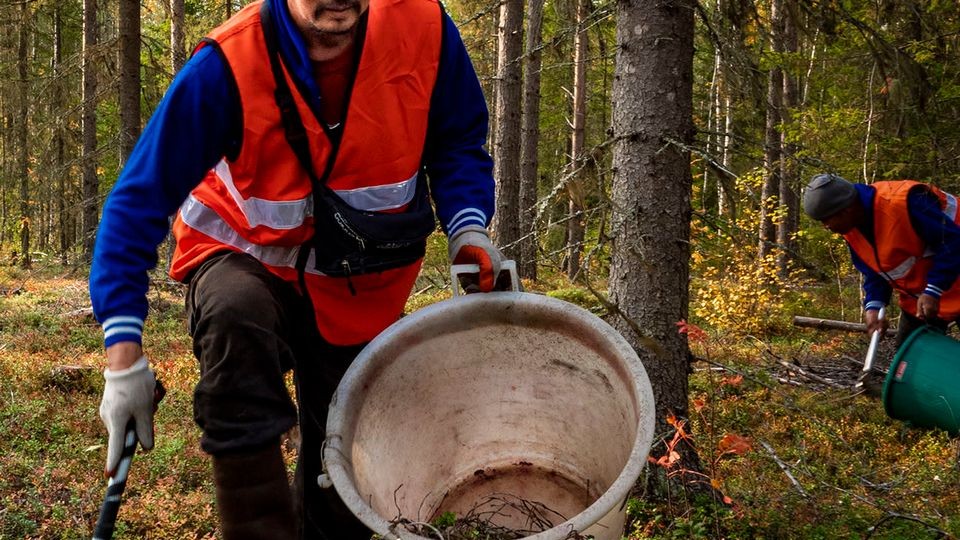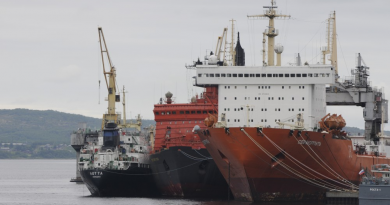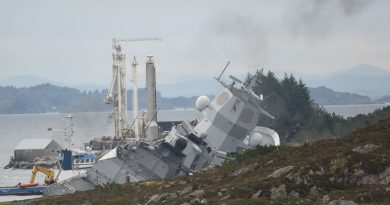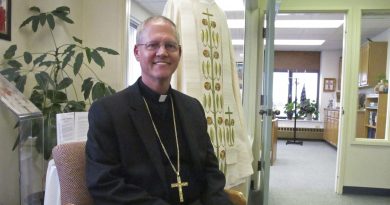Thailand demands answers over workers’ COVID-19 outbreaks in places like Finnish Lapland

More than 200 Thai berry pickers in Finland have been diagnosed with Covid-19 since the beginning of this month.
Thailand has demanded an explanation from Finnish authorities regarding a series of Covid outbreaks among Thai nationals working as berry pickers in Finland this summer.
More than 200 of the pickers have been diagnosed with Covid since the beginning of August.
On Tuesday, it was reported that berry companies Arctic International and Polarica transported at least 260 foreign berry pickers from Lapland to eastern Finland even though most of them were infected by or exposed to coronavirus.
In response to the ongoing situation, Thailand’s Ambassador to Finland, Chavanart Thangsumphant, said that the berry picking firms which hired Thai pickers signed an agreement that they would protect their health amid the ongoing coronavirus epidemic.
The agreement was intended to safeguard the pickers, who are not regarded as employees under Finnish law and therefore don’t get many of the protections due to those in an employment relationship.
“We are now waiting for authorities to find out whether the companies fully and properly complied with the agreement’s conditions or not,” Thangsumphant said.
The terms of the agreement oblige the berry companies to take care of the pickers, as well as provide appropriate treatment and compensation if they do get Covid. The terms also spell out conditions regarding companies’ obligations to provide health insurance, accommodation and transportation.
The agreement also stipulates that pickersneed to be paid compensation if they are ordered into quarantine and obliges firms to pay out compensation if a picker dies of the disease while in Finland.
According to the contract, companies are compelled to pay the equivalent of roughly 25,500 euros to a picker’s family in the event of their Covid-related death.
Freelancers vs employees
Thangsumphant said Thailand hopes Finnish berry companies would recognise their hired pickers as employees, thus granting them rights in line with local employment laws.
“In this way, pickers could be guaranteed fair and equal rights to, among other things, well-being and health, similar to the rights that Finnish workers have,” Thangsumphant said.
The ambassador also said Thailand wants to expedite the exchange of information with Finnish authorities in cases where the Thai workers are faced with problems with their health or working conditions. Thangsumphant said the embassy hopes that the Finnish foreign ministry will take swift action.
Thangsumphant noted that Thailand has been in contact with Finnish authorities since the berry pickers’ first Covid infections were detected. The embassy has requested that Finnish authorities investigate their residential quarters to discover the reason for the infection outbreaks.
The ambassador said she believes the authorities in Finland were doing their best to protect the berry pickers. She noted that in her opinion, providing the safeguards is required by Finnish law aiming to prevent the exploitation of foreign labourers.
Rules and regulations
Some of the coronavirus outbreaks took place in Lapland, and the region’s State Administrative Agency (Avi) plans to investigate safety-related measures carried out at berry picking outfits, according to the agency’s local chief physician, Sari Kemppainen.
She said that the Avi was under the impression that the berry companies had jointly planned with the Lapland Hospital District about how to handle the pickers once they arrived in the country.
“Those kinds of guidelines were prepared and issued by the THL (the Institute for Health and Welfare) and the Ministry of Economic Affairs and Employment. The responsibility for carrying out the guidelines belongs to the berry companies,” Kemppainen explained.
Employment ministry government advisor Olli Sorainen said that the instructions given to berry companies were clear, adding that the firms were also responsible for ensuring the pickers’ accommodations were safe and up to regulatory standards.
Sorainen said Finland should consider whether to amend those types of regulations in order to ensure the health and safety of workers.
“A separate project is set to be launched in the autumn regarding the authorities’ supervision of foreign workers’ conditions, as well as possible sanctions that could be imposed for non-compliance,” Sorainen said.
THL Senior Expert Jari Jalava said that laws should address the conditions under which workers are brought to the country. Health authorities are unable to intervene and the Communicable Diseases act does not address the matter.
Coronavirus infection clusters began to spread rapidly among berry pickers at the beginning of this month, despite the fact that the workers were tested when they arrived in Finland.
Earlier this week, chief infectious diseases doctor of the Lapland Hospital District, Markku Broas, noted that quarantine rules and the Communicable Diseases Act were violated during the transfer of ill workers to Kainuu and North Karelia.
Broas said that he suspected the root cause of the infection clusters were due to Covid tests being taken as the workers arrived in Finland. The tests did not immediately identify emerging infections, which resulted in a rapid spread of the virus among densely populated groups.
Related stories from around the North:
Canada: ‘Need is urgent’: Canada’s Northwest Territories asks Red Cross, feds for help dealing with COVID-19 outbreak, CBC News
Finland: Berry firms moved harvesters from Lapland to East Finland even if exposed to, infected with COVID-19, Yle News
Greenland: Greenland reports 16 new COVID-19 cases, including two nursing home residents, Eye on the Arctic



